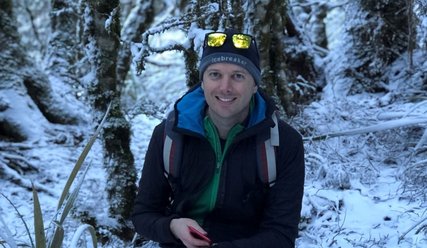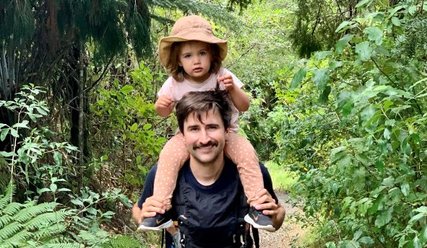Two doctors with an eye for innovation: the RiSC initiative to improve rural health care
One of the College’s goals is to increase the number of rural general practitioners across the country, and likewise, to increase the number of graduates of the Division of Rural Hospital Medicine (DRHM). This is primarily due to the shortage of doctors practising in rural areas, which has meant that patients living in small towns and remote locations sometimes struggle to access the care they need.
The corollary of this is that doctors working in rural areas across the country often work long hours and deliver a broad range of services. They must be prepared for anything, particularly when it comes to trauma and emergency care - but how do they get experience in this area before they need to deal with life and death situations?
It was after recognising this disparity that two like-minded colleagues started thinking about ways to address the issue. DRHM Fellows Marc Gutenstein and Sampsa Kiuru ran the University of Otago’s postgraduate paper in trauma and emergencies for rural hospital trainees back in 2014, and in the course of doing so realised some of our rural hospitals weren’t always adequately resourced to handle incidences of trauma and emergency. As Gutenstein and his colleagues wrote:
“The trauma burden in rural areas is at least as high, if not higher, than urban areas. Despite this, access to health services in rural areas is more limited.”
Moreover, the pair identified that the training provided for trauma and emergency in urban centres was largely inapplicable in rural hospitals. Sampsa and Marc recognised that rural health teams need tailored education and training to address the nuances of rural hospital emergency care, which requires an inter-professional approach that includes nurses, paramedics and other pre-hospital teams. It was these things that informed the creation of the Rural-Inter-professional Simulation Course (RiSC).
With the help of several others, including DRHM Fellow Dr Steve Withington, Sampsa and Marc developed RiSC to fill the gap they’d identified in rural health care: an immersive three-day course which focuses on emergency and trauma care using highly realistic skills and simulations. By asking participants to identify their own educational needs in a pre-course survey, they developed the course to include both practical skills and technical knowledge. This includes procedural skills training, simulation scenarios, lectures and skills sessions in the management of common trauma incidences.
Skills taught include common airway procedures, chest trauma, vascular access, and fracture splinting methods. The simulation sessions are delivered with the help of mannequins programmed to enact common injuries, allowing participants to play out the treatment procedures in life-like scenarios.
Participants are put into teams of five and, in a learn-as-you-go environment, gain valuable skills through peer and teacher evaluation. The feedback from course participants has been overwhelmingly positive, and after the first three months of running it, four hospitals had sent more than one team to attend.
For Sampsa, one of the things he most enjoys about teaching the RiSC course is the collegiality.
“Being spread out across these rural areas, we never really get to spend much time with other rural health teams, but RiSC brings us together and allows us to share our stories. The energy of collaboration between teams is really satisfying.”
For Marc, one of the most fulfilling parts about the course is the transformation in participants’ behaviour.
“I could see some team members have a kind of ‘light bulb’ moment when they learnt something new. Aside from the technical side of things, seeing the participants learn how to work effectively as a team in these high-pressure situations was really satisfying.”
RiSC is offered twice a year (in May and October) at the Rural Health Academic Centre in Ashburton. You can visit the University of Otago website to find out more about registering for a RiSC course this year. To find out more about the development of the RiSC course, check out this recently published article in the Journal of Primary Health Care.


